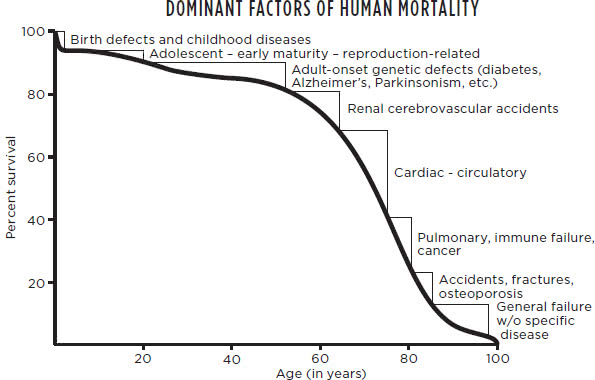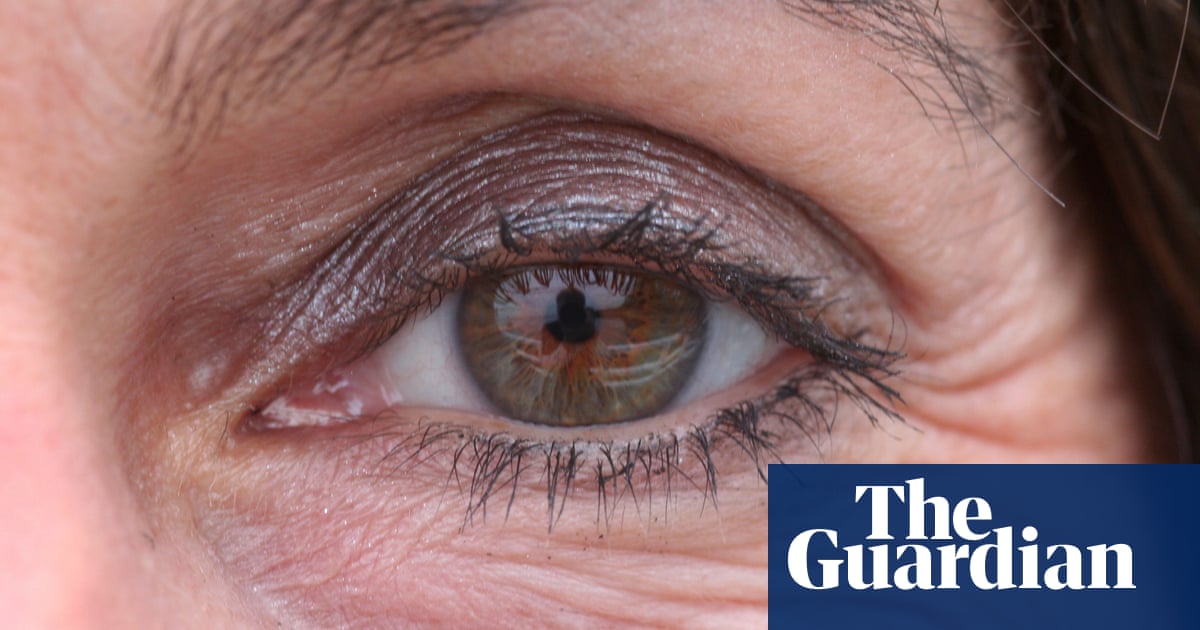If you have noticed a sudden accumulation of wrinkles, aches and pains or a general sensation of having grown older almost overnight, there may be a scientific explanation. Research suggests that rather than being a slow and steady process, aging occurs in at least two accelerated bursts.
The study, which tracked thousands of different molecules in people aged 25 to 75, detected two major waves of age-related changes at around ages 44 and again at 60. The findings could explain why spikes in certain health issues including musculoskeletal problems and cardiovascular disease occur at certain ages.
“We’re not just changing gradually over time. There are some really dramatic changes,” said Prof Michael Snyder, a geneticist and director of the Center for Genomics and Personalized Medicine at Stanford University and senior author of the study.
“It turns out the mid-40s is a time of dramatic change, as is the early 60s – and that’s true no matter what class of molecules you look at.”
…
The research tracked 108 volunteers
Not enough to actually mean anything.
Read further in that paragraph:
Researchers assessed 135,000 different molecules (RNA, proteins and metabolites) and microbes (the bacteria, viruses and fungi living in the guts and on the skin of the participants).
Also, see the previous article in Nature linked in the article. That study looked at fewer proteins, but had over 4,000 participants.
I mean, that makes me even more skeptical. 108 volunteers tracked for that many sparesely populated vectors is 100% going to have hundreds of false positives just due to statistical noise.
44 is probably the average age at which people start paying for their kids’ college tuitions. That shit will age anybody.
Fuck you all, I just turned 44.

RIP
I def feel like I noticed this in my mid 40s. My face and hair all looked very different within a year.
Well that explains why I feel like I’m about 80 now that I’m 47.
48 here… i used to be able to read the freaking copyright date on those eye charts … once i hit mid 40s i need glasses.
I just got progressive bifocals. It was nice to be able to read my watch properly again, but not so nice to have to look down whenever I’m going up or down stairs and to have to move my head around all the time to see all the real estate on my monitor since it’s 27".
Turned 44 6 months ago. Haven’t felt it yet. Guess it’s going to get rough soon…
Yeah West in his seminal “Scale” kind of corroborates the whole story.

It seems, though, that the molecular changes you are undergoing do not immediately translate into increased mortality, so you’re going to have several more years of - presumably - feeling well until the big drop-off starts for all of us at about 60.
BTW, because of its wide range of topics, its solid scientific underpinnings and its excellent intellectual accessibility, this is one of two books I positively think should be taught at any school, the other one being Solé’s “Phase Transitions.”One morning you’ll wake up and every bone in your body will pop simultaneously. Then while you lay there aching you’ll let out a 6 mimutes and 20 second fart that doesn’t have a happy ending.
The horror.
Wait til you sleep wrong and wake up wondering how you threw your back our.

Fucking great. I turn 44 next year.
Starting to believe it. Had a babyface for the first half of my life. Now i look like a retired state trooper
Oh, fuck me! I got nothing else.
The idea that anyone would think that our bodies change at a constant rate is so bizarre to me, having gone through puberty myself (not to brag).
So is it kinda like extra stages of puberty?
The Guardian - News Source Context (Click to view Full Report)
Information for The Guardian:
MBFC: Left-Center - Credibility: Medium - Factual Reporting: Mixed - United Kingdom
Wikipedia about this sourceSearch topics on Ground.News
Removed by mod
There are tons of statistical methods to get reasonable conclusions without an RCT. Some things can not be detected with an RCT, because the experiment is just impossible to run, so sometimes you need methods to do causal identification with observable data. Here you do not even need causal identification methods for observational data. You just need to do some descriptive statistics for a large group of people well to find interesting patterns. Whether this aging pattern in the mid-40s is causal it coincidental is not important at first. The pattern itself is interesting.
Removed by mod







